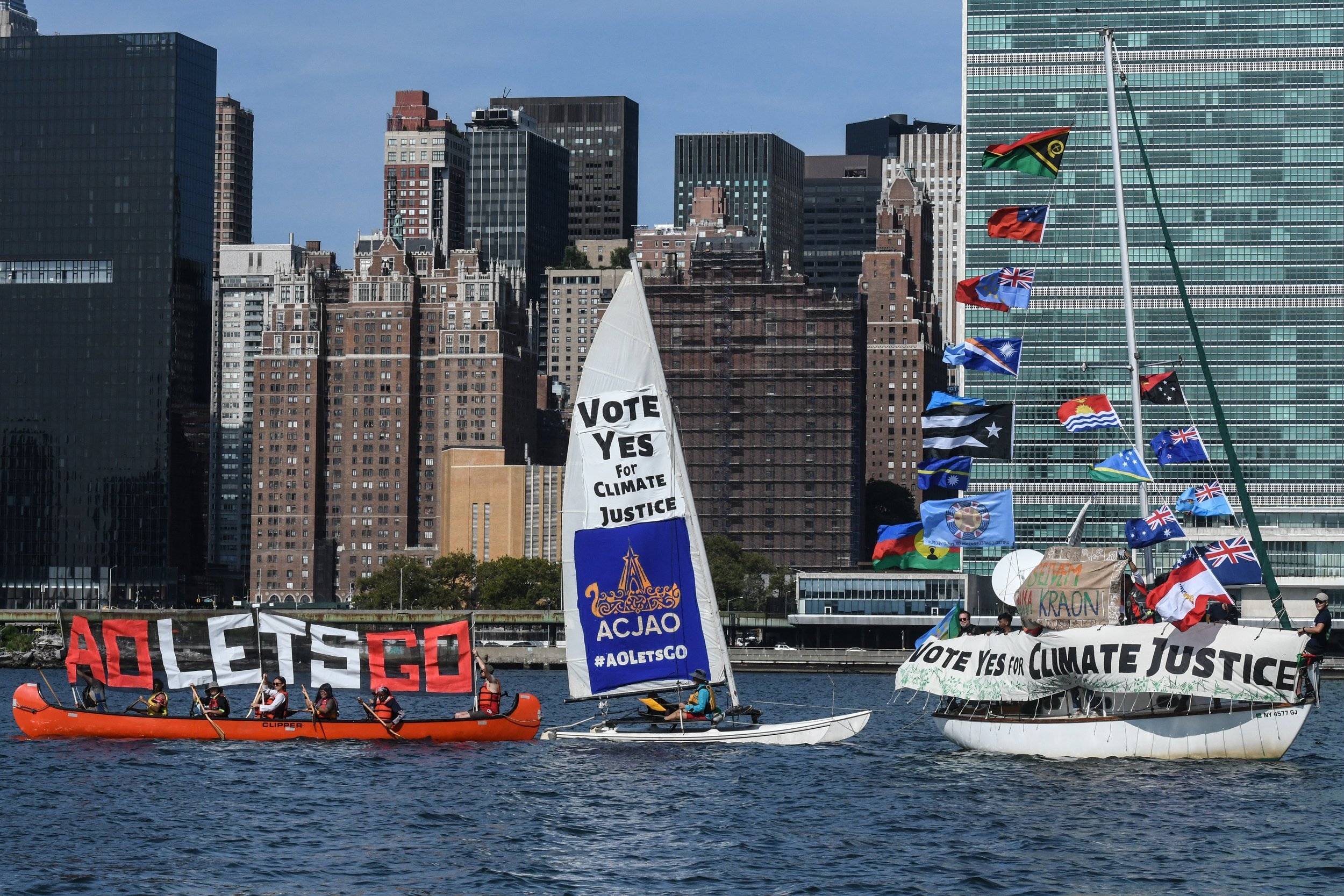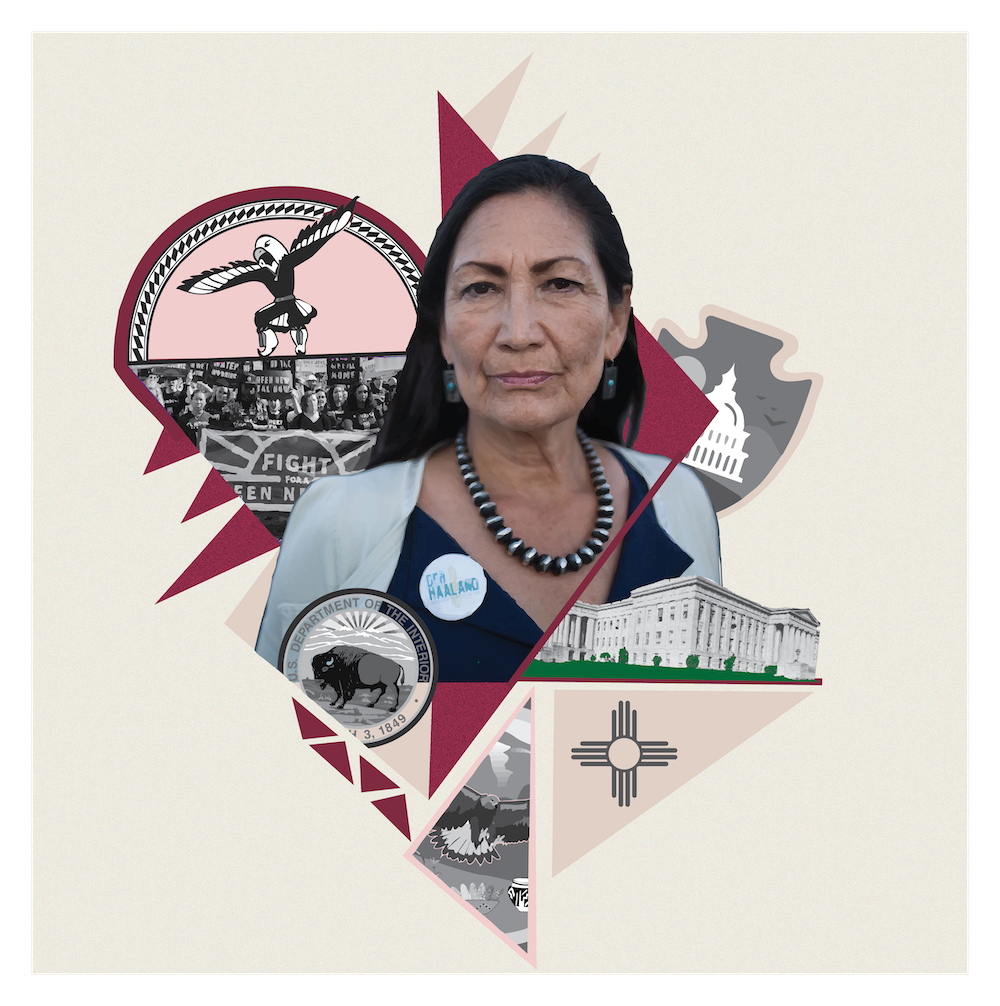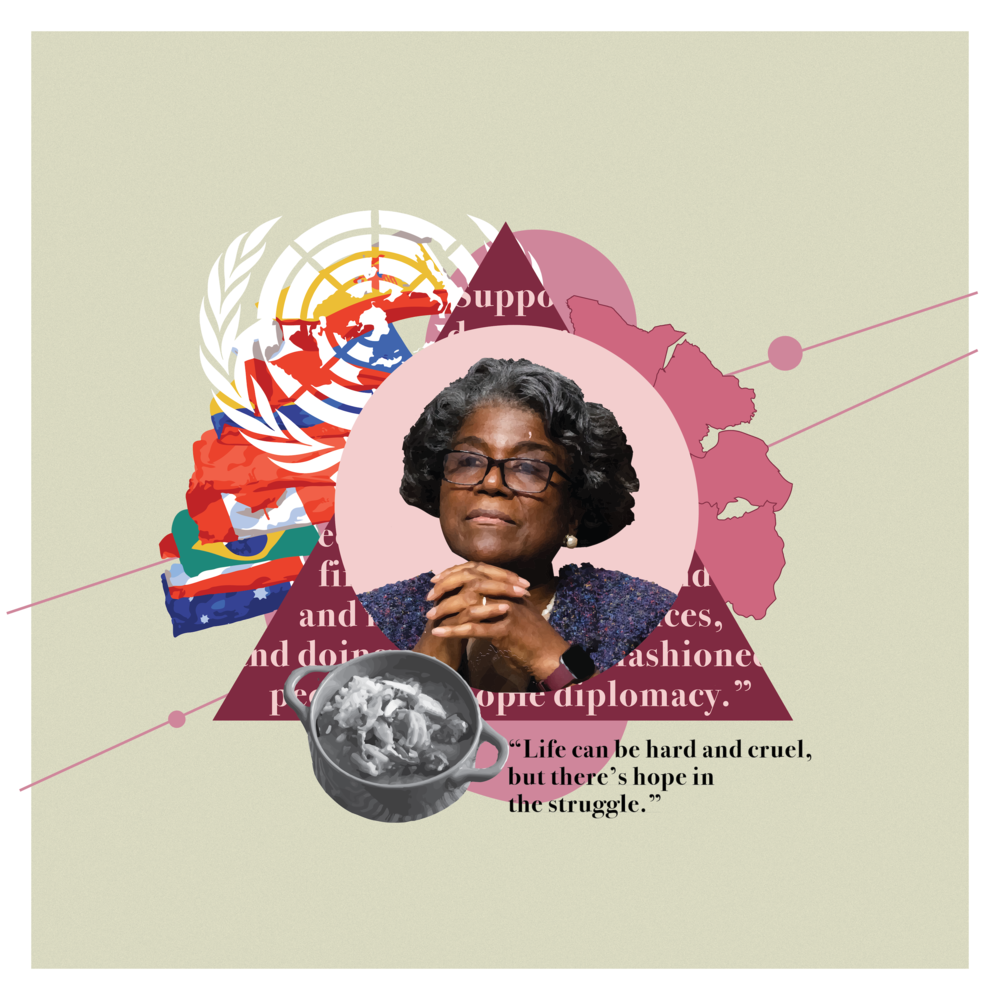Last week, the UN General Assembly passed a resolution that could have a big impact on climate justice. The resolution, put forward by the Pacific Island nation of Vanuatu, petitions the world's highest court to rule on the obligations that countries have to combat the climate crisis.
The historic resolution marks the first time that the international court has been called on to address the climate crisis. In his remarks to the assembly, UN Secretary General António Guterres called the landmark decision “essential.” Vanuatu's prime minister Ishmael Kalsakau said of the victory, "[W]e have witnessed a win for climate justice of epic proportions. The very fact that a small Pacific island nation like Vanuatu was able to successfully spearhead such a transformative outcome speaks to the incredible support from all corners of the globe.”
Vanuatu's resolution was co-sponsored by more than 100 countries and passed the UNGA by a majority vote with support from more than 130 countries. The world's two biggest emitters, China and the US, declined to support the motion, but did not object.
The International Court of Justice (ICJ) will now hold hearings and hear evidence on the obligations of states in respect to climate change, and is expected to hand down an advisory opinion in 2024. Although the ICJ's opinion will not be legally binding, advocates say that it carries great legal and moral authority. The opinion could give rise to legal challenges against countries that fail to take action to reduce their greenhouse gas emissions, particularly those with high emissions that are contributing to climate-related impacts. Carroll Muffett, president of the Center for International Environmental Law, told The Washington Post that "it is hard to overstate the significance of this development as a matter of international law."
‘The Power of the People’ is a short explainer animation on the ongoing campaign to seek an Advisory Opinion from the International Court of Justice (ICJ).
As sea levels rise and natural disasters become more frequent, vulnerable island nations like Vanuatu are bearing the brunt of the climate crisis. Vanuatu holds the dubious distinction of having the highest disaster risk of any country worldwide. Despite having net zero emissions of its own, the island's population of just over 300,000 people are already facing disasters and threats from extreme weather events. Just last month, they endured two cyclones in less than one week. Although tropical cyclones are common in that part of the world, scientists say that extreme weather events are exacerbated by the changes in temperature caused by greenhouse gasses.
Fiji chapter of the PISFCC. (Photo courtesy of their website.)
How a Small Group of Students Got the UN to Act
A little over three years ago, a group of law students in a class in Fiji began looking into legal strategies to hold the world's biggest emitters accountable for their contributions to the climate crisis and came up with the idea of petitioning the International Court of Justice with a resolution in the UN General Assembly.
Cynthia Houniuhi, president of Pacific Islands Students Fighting Climate Change, told CNN that she was hesitant about the idea at first: "My mind [kept] telling me to back off. I mean, let’s be real here, it was too ambitious to say the least. Like, how can a small group of students from the Pacific Region convince the majority of the UN members to support this unique initiative?”
Watch an interview with Cynthia Houniuhi, president of Pacific Islands Students Fighting Climate Change.
But the students persisted and got professors and other students to sign a petition. Eventually, they sent a proposal to the leaders of all the Pacific Island nations. A government minister from Vanuatu expressed interest, and the students met with him. Vanuatu approved the resolution and brought it to the General Assembly for a vote.
The students and other Pacific Islander activists kept up the pressure on UN members during last year's New York Climate Week and at COP27 in Sharm el-Sheikh, Egypt, where leaders finally agreed to create a loss and damage fund, which was originally proposed back in 1991 by Vanuatu.
Pacific youth hold flotilla in New York calling on vote for climate justice at United Nations. (2022) Photo credit: Stephanie Keith/Greenpeace
The guiding principle of the resolution is that wealthy countries — which have contributed the most to climate change with their high emissions — should pay poorer nations' recovery costs after disasters caused by climate change.
As lead counsels Julian Aguon and Margaretha Wewerinke-Singh wrote in The Nation this week, the victory for Vanuatu is a victory for millions of people who are already disproportionately affected by the impacts of a warming planet and vulnerable if action isn't taken by the biggest emitters.
“For the first time in history, the court could set out in well-defined and transparent terms the responsibilities of states to protect both the climate system and the rights of present and future generations from climate-induced harms.
Further, the court could recognize that those harms are disproportionately felt by those least responsible for them — small-island developing states and other countries considered particularly vulnerable, owing to geographic circumstance, a history of colonization, or other factors. And it could spell out the specific ways states should correct these inequalities and repair climate harm.”
Vanuatu's call for international action on climate change is not just about protecting its own nation, but about ensuring a livable future for all of us.
Cynthia Houniuhi, president of PISCC, says that she decided to study law because “I felt like there are so many vulnerable people, like women and children, and their voices are not heard as often and I thought I could be a voice for them.” Reflecting on the campaign, she says, “To be able to do what the group in my international environmental law class have done… It is very empowering for someone like me with my background to be part of a solution.”
The action of these young law students, their supporters throughout the Pacific Islands, and the government of Vanuatu shows us that we each have a role to play in the climate crisis — and we need to think big and aim high!
Onwards!
- Pat









